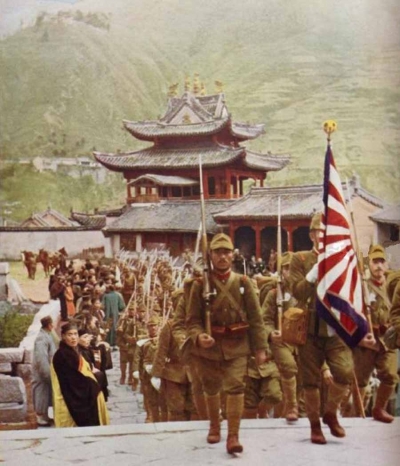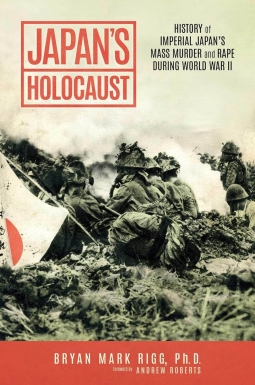China - Twentieth Century - Sino-Japanese Wars
 Recommended:
 "Another Now It Can Be Told story - one of the best kept secrets of the Pacific war - came out last month when it was revealed that a U.S. naval group had been operating with Chinese guerillas behind the Jap lines in China. Their combined efforts, the Navy disclosed, had been a vital factor in the smashing blows of the Pacific Fleet against Jap-held islands, the Jap Navy and, finally Japan itself." Hallett Abend (1884 - 1955) was an American journalist who lived in China for fifteen years. He covered the Sino-Japanese War during its early years and had seen first-hand the beastly vulgarity of the Japanese Army. After Pearl Harbor, the editor at Liberty turned to him in hopes that he would explain to the American reading public what kind of enemy they were fighting:
"In four and a half years of warfare [in China], the Japanese have taken almost no prisoners... Chinese prisoners of war are shot." Directed by Ben Mindenburg, Scorched Earth was released in April of 1942 in order to show the beastliness of the Japanese military in China. These are the observations of an American woman in fascist Japan; the writer was Joy Homer. In this article she tells of her travels to Tokyo in 1940 where she was asked to secretly address those small groups that silently wished for a republican form of government while silently opposing their country's imperial conquest of China.
"'Exactly four months after the outbreak of the Sino-Japanese hostilities on the Shanghai peninsula' a New York Herald Tribune correspondent cabled from Shanghai last week, 'Nanking, China's abandoned capital, for the third time in it's more than 2000 years of history, was captured by an alien foe when the Japanese military forces completely occupied the city.' ...To this, Quo Taichi, Chinese ambassador to England, replied defiantly: 'Capture of Nanking will by no means mark the end of China's resistance.'" "The occupation of Nanking by the Japanese army in December, 1937, resulted in the greatest authenticated massacre in modern history." "Fifty thousand blood-crazed beasts in Japanese uniforms roamed China's fallen capital for four weeks in a mad Saturnalia of butchery, rape and pillage without parallel in modern history. That story, suppressed by the Japanese military who chased news correspondents and foreign officials out of Nanking, is told for the first time by one of the few Americans who remained, a 'go-between' for the U.S. Government with 20 years of service in China. He saw roped bundles of humanity saturated with gasoline and ignited for a Nipponese holiday." |
MORE ARTICLES >>> PAGE: * 1 * 2 * 3 * 4 * > NEXT |
|